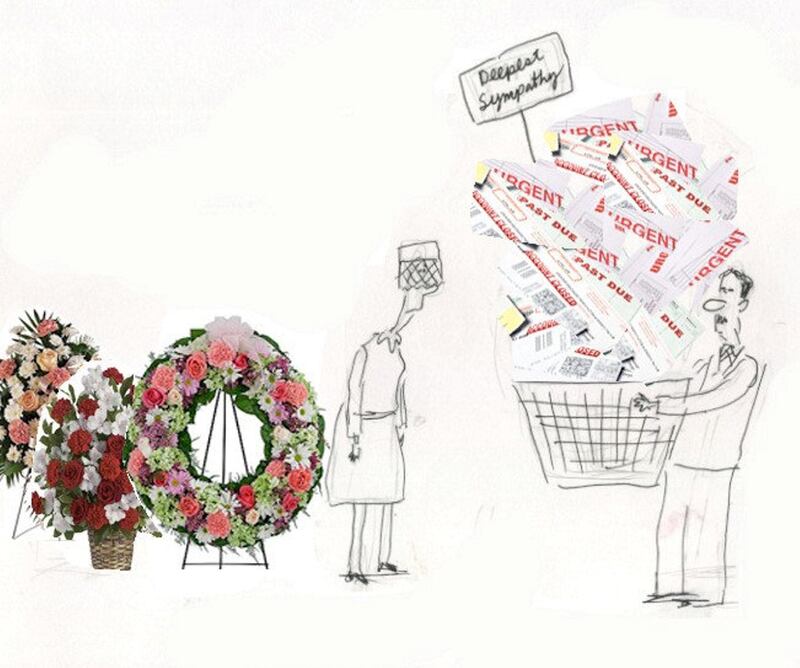Along with photographs of an affair, found among papers left in the safe, she discovered her husband had left her in debt and sinking in financial quicksand.
Neither is what a newly widowed woman wants to deal with. But it's the unwelcome realities that the character played by Diane Keaton in the film Hampstead had thrust upon her. The movie is based on the real-life story of a hermit who was given title deeds to land he had lived on for over 12 years on Hampstead Heath, a large green space in North London. He chose to live a life of self-sufficiency off the grid, and ended up a millionaire by accident; the land he gained was worth a few.
The movie isn’t great, but it does bring up a huge issue through the horrors that Keaton's character goes through. While her character is fictitious, the problems it grapples with are not.
Eighty per cent of men die married (this is a US statistic). Ergo those at huge risk of living Keaton’s worries are women.
Widows: there are nearly 260 million globally and grief is just one of many emotions that overcome them.
As baby-boomers get closer to retirement age, preparing women for the likely loss of their partner is critical. Women of that generation married older men, and will live longer. Widowhood has financial consequences and brings with it financial decisions that must be made.
If you’re married, one of you will die first. If it’s you, the best thing you can do for your spouse is take away the money worry.
So today let’s look at a financial survival kit you can put together to lessen the blow:
• Start the conversation: talk through the financial knockon effect of either of you dying.
• Make sure you both know what assets, debt, investments you hold – individually and jointly.
• List all account numbers. Ensure details, contacts, and wills are up to date.
• Find out financial facts like: does death erase debt? What would you be liable for. And then do something about it. It could be that putting debt, assets, or any other financial tool in your, your partner’s or your joint names can mitigate huge financial headache when the time comes. When a spouse dies, life doesn’t stop. Bills still need paying, insurance policies still need to be active.
• List things that must be paid monthly, quarterly, annually. Focus on the monthly ones. There will be a lot of emotion to deal with, including grief, anger and despair. Have it set up so you can go on autopilot and keep these payments up to date. Everything else can wait a little longer because you probably won’t be in the clearest frame of mind.
_______________
Read more:
Are you part of the repair revolution?
Money Clinic: How do I stop being the family ATM?
_______________
• Do not make any irreversible decisions straight after the death. The newly bereaved are pulled in different directions – should they live with an adult child – sell up – stay put? Don’t make any of these decisions for at least six months.
• If you receive an insurance payout, sit on the money. Paying off the mortgage might seem a good idea, but it robs you of liquidity, and options, later on - should you need it. A common knee-jerk reaction is the need for financial security. Many a policy - things like an annuity - have been taken out in haste, only to be regretted later.
• If you’re tempted to do anything quickly with a significant chunk of your net worth, pay three different professionals for another opinion, just to be sure that you know what you’re in for.
• A widow’s budget and long-term planning needs will change. Here are some practical things to consider:
- Life insurance: Do you have it, is it enough?
- Children under 18: can their daily living expenses be met?
With sadness comes vulnerability, and there is nothing selfish about saying no, a lot, in the first few years after your loss.
Imagine being able to take as long as you need if you lose your partner - to just take care of yourself and deal with the emotional fallout. No nasty surprises of any sort. What a great way to be remembered.
Nima Abu Wardeh is a broadcast journalist, columnist and blogger. Share her journey on finding-nima.com






